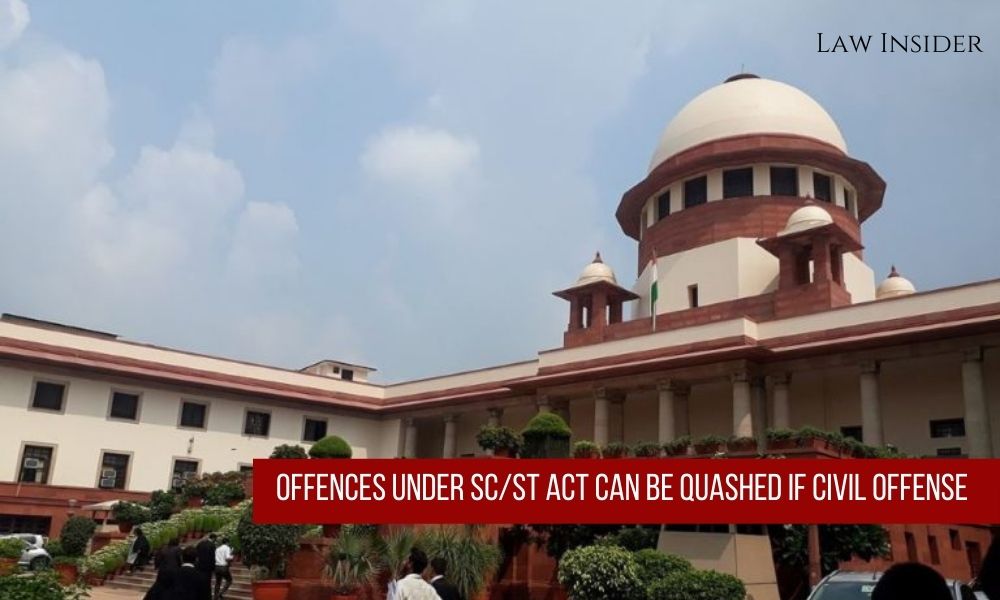Alka Verma –
Published On: October 26, 2021 at 10:00 IST
The Supreme Court stated that it can use its power under Article 142 of the Constitution to quash any ongoing proceedings under the Scheduled Castes and the Scheduled Tribes (Prevention of Atrocities Act), 1989.
Similarly, High Courts can use their power provided under Section 482 of the Code of Criminal Procedure to stop such proceedings.
The Court also observed that these proceedings can only be quashed if the dispute is private and a compromise has been made between the parties without coercion or violence.
A Bench comprising Chief Justice of India N V Ramana and Justices Surya Kant and Hima Kohli stated, “Where it appears to the court that the offence in question, although covered under the SC/ST Act, is primarily private or civil in nature, or where the alleged offence has not been committed on account of the caste of the victim, or where the continuation of the legal proceedings would be an abuse of the process of law, the court can exercise its powers to quash the proceedings.”
The Bench also ruled that the compromise made between the parties must be done with a free will, not with using any violent or coercive power.
“If the court is satisfied that the underlying objective of the Act would not be contravened or diminished even if the felony in question goes unpunished, the mere fact that the offence is covered under a ‘special statute’ would not refrain” it or the High Court “from exercising their respective powers under Article 142 of the Constitution or Section 482 CrPC,” stated the Bench.
The Court made these observations while it was quashing a case filed against a man for throwing bricks and making caste related comments on his neighbour.
In the said case the Apex Court observed that it was a minor dispute related to property and the remarks used were made out of anger.
The Court also noted that it was predominantly a civil matter with “Minor undertones of criminality.”
The Bench also noted that the Appellant person who was under trial also belonged to a weaker section of society.
Lastly, the Court stated that it would be injustice to continue the proceedings and hence quashed the proceedings against the Appellant.
Click here to read/download the Order
Also Read: Karnataka HC: Frivolous PIL To Stop Scheduled Caste Woman From Succeeding

